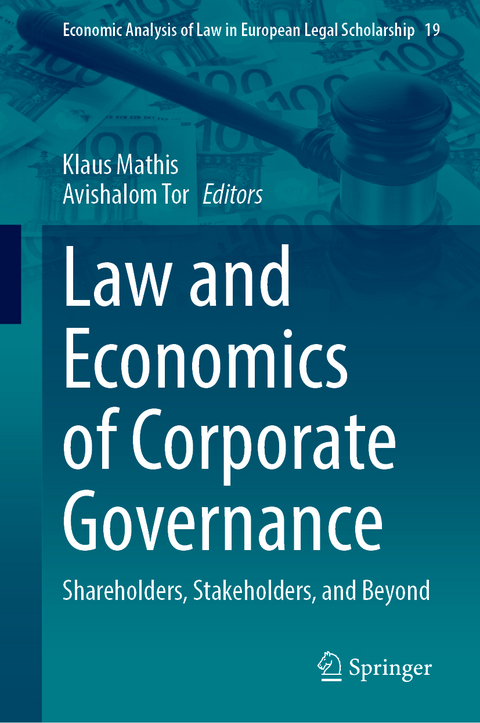
Law and Economics of Corporate Governance
Springer International Publishing (Verlag)
978-3-031-76020-4 (ISBN)
- Noch nicht erschienen - erscheint am 29.01.2025
- Versandkostenfrei
- Auch auf Rechnung
- Artikel merken
This book aims to analyse the principles and merits of CSR and ESG approaches using a law and economics perspective. The traditional law and economics view of corporate governance emphasises profit-maximisation and a shareholder-oriented approach. This perspective, famously endorsed by Milton Friedman, suggests that a business's sole social responsibility is to maximise profits within legal boundaries. Consequently, mainstream corporate governance scholarship has focused on structuring and regulating business organisations to achieve efficiency and minimise agency costs arising from diverging interests and asymmetric information among managers, shareholders, and creditors. However, recent decades have seen increased attention to the role and interests of other corporate stakeholders, such as employees, consumers, and communities. This shift includes the concept of corporate social responsibility (CSR), which addresses ethics-based issues like working conditions, human rights, fair competition, and environmental protection. While CSR has often been a form of self-regulation, regulatory schemes now support and incentivise this practice, promoting "stakeholderism" to enhance corporate reputation and profitability while ensuring social accountability. More recently, the focus on business sustainability has intensified under the banner of environmental, social, and governance (ESG) criteria. ESG considerations are now central in the corporate world, influencing ratings, investment decisions, and corporate strategies. Despite support from some scholars and institutions, critics argue that CSR and ESG may fail to benefit stakeholders and could impose high costs on businesses and the economy. Additionally, there are concerns about whether board members and managers are properly incentivised to protect stakeholder interests, as CSR and ESG can sometimes be used to avoid regulation or advance private interests.
Klaus Mathis is Full Professor of public law, law of the sustainable economy, and philosophy of law at the University of Lucerne. He is Director of the International Network for Law and Economics-lucernaforum, Director of the Institute for Interdisciplinary Legal Studies-lucernaiuris, and Director of the Center for Law and Sustainability (CLS). His particular fields of expertise are Swiss constitutional law, law and economics, law of sustainable development, and philosophy of law.
Avishalom Tor is Professor of law and Director of the Notre Dame program on law and economics and the Notre Dame research program on law and market behaviour. His primary research fields are behavioural law and economics, antitrust law, behavioural regulation, and the psychology of judgment and decision-making.
| Erscheint lt. Verlag | 29.1.2025 |
|---|---|
| Reihe/Serie | Economic Analysis of Law in European Legal Scholarship |
| Zusatzinfo | IX, 247 p. 5 illus. |
| Verlagsort | Cham |
| Sprache | englisch |
| Maße | 155 x 235 mm |
| Themenwelt | Naturwissenschaften ► Biologie ► Ökologie / Naturschutz |
| Recht / Steuern ► EU / Internationales Recht | |
| Wirtschaft ► Volkswirtschaftslehre | |
| Schlagworte | Corporate Purpose • Corporate Social Responsibility • Due Diligence • Environmental, social and corporate governance (ESG) • ESG reporting • Green Bonds • Greenwashing • market regulation • supply chain regulation • sustainability |
| ISBN-10 | 3-031-76020-4 / 3031760204 |
| ISBN-13 | 978-3-031-76020-4 / 9783031760204 |
| Zustand | Neuware |
| Informationen gemäß Produktsicherheitsverordnung (GPSR) | |
| Haben Sie eine Frage zum Produkt? |
aus dem Bereich


